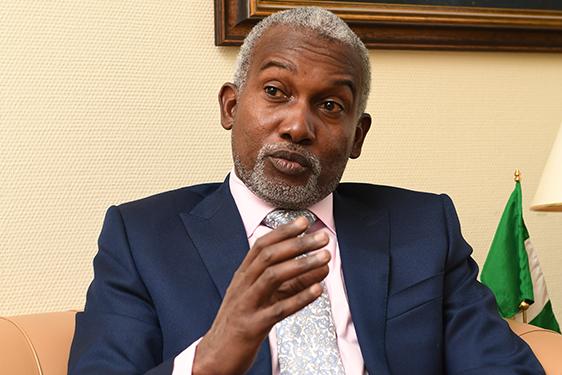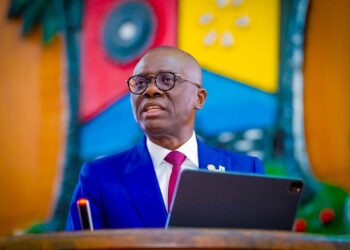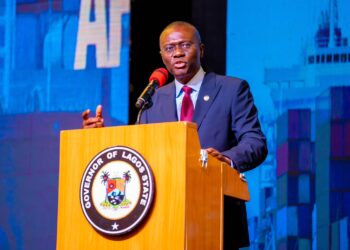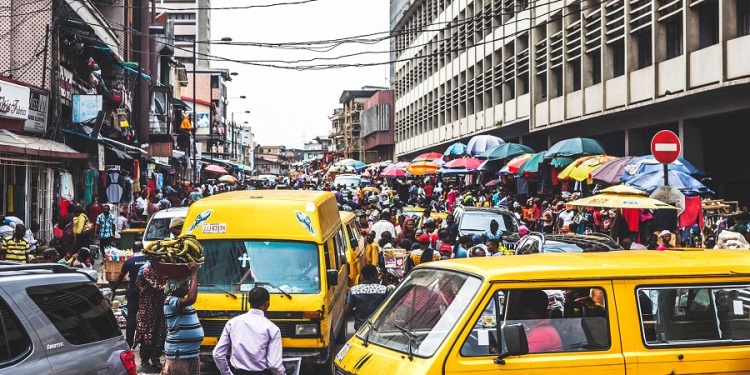The Minister of Foreign Affairs, Yusuf Tuggar, has stated that Nigeria’s debt-to-GDP ratio indicates the country is not among the most heavily indebted developing nations globally.
Tuggar made this remark during an interview with Channels TV on Sunday, where he discussed the outcomes of Nigeria’s participation in the recently concluded 79th session of the United Nations General Assembly (UNGA 79).
The Minister emphasized that Nigeria’s debt profile does not place the country in a precarious situation. He further noted that nations like China are even willing to extend more loans to Nigeria for infrastructure development and other projects.
“When it comes to the issue of debt. Look at the debt to GDP ratio of Nigeria, we are not even among the critically indebted nations.
“When we talk about debt of a developing country, Nigeria is not in that sort of precarious situation. As a matter of fact, China is prepared to lend more. China is prepared to invest more in Nigeria in terms of infrastructure, development and other things,” Tuggar said.
On the issue of debt forgiveness as one of the discussions at UNGA 79, the Minister said Nigeria is not seeking debt forgiveness for itself alone, but as the leader of the global south, the country is speaking on behalf of most developing nations.
“What you’re failing to take into consideration is when talk about debt forgiveness, we are not necessarily referring to ourselves.
“Nigeria is considered a leading nation, not just on the African continent, but in the global south. When we speak, we speak on behalf of Africa, we speak on behalf of developing nations, we speak on behalf the global south. And we speak as the largest black nation on earth,” Tuggar added.
Largest Economy by GDP
Speaking further, Tuggar noted that Nigeria would have the highest GDP in Africa if the informal sector is accurately captured and included in measuring the country’s GDP.
He said the National Bureau of Statistics (NBS) is already working to rebase the GDP to include the informal sector, which contributes a large percentage of the country’s economic activities.
Tuggar explained that while criticisms of the country’s performance are welcome, it is important that they do not lead to undue self-flagellation.
“Nigeria is the largest economy by GDP in Africa. The National Bureau of Statistics (NBS) is in the process of rebasing our economy. Look at the side of our informal sector that is not been included in the measure of GDP. While we are discussing facts, let’s put aside the self-flagellation.
“We don’t have to keep pushing ourselves down when the world looks at us differently. I’m not saying we should not have constructive criticism,” Tuggar said.
What you should know
Nairametrics had previously reported that Nigeria’s debt-to-GDP ratio has crossed 50% for the first time, following the release of the country’s latest public debt figures by the Debt Management Office (DMO).
According to the DMO, Nigeria’s public debt now stands at N121 trillion, comprising N65.6 trillion in domestic debt and $42.1 billion in foreign debt, which equates to N56 trillion when converted to Naira.
As of December 2023, Nigeria’s total nominal GDP was N229.9 trillion, although it only grew by 2.74% in real terms. This means the country’s debt-to-GDP ratio has now surpassed the 50% mark for the first time in history.
Nigeria’s debt profile has significantly increased over the past eight years, driven by a combination of fiscal challenges, including lower crude oil revenues and escalating budgetary expenditures.























